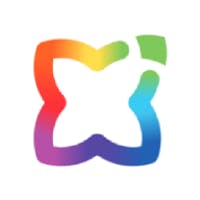Learnlife is leading the revolution when it comes to training schools in modern and innovative educational approaches like autonomy and passion-based learning.
The video below showcases the transformative collaboration between Learnlife and its partner school, Acesco. This collaboration brought passion-based learning to its programme, prioritising learners’ interests and passions.
In the video, Learnlife trainer Joan Urgell discusses what passion-based learning is and how it can bring a new human-centred dimension to any curriculum.
With maker labs and student-led learning, Acesco was able to create a truly individualised learning experience for their students within the state curriculum.
This resulted in 120 students across three grades growing their agency and autonomy and six teachers trained to guide and facilitate passion-based learning experiences.
Due to the impact of the training, it’s now being expanded across Empremta’s group of 5 schools in Catalunya.
You can read the transcript below.
Trainer: The main objective of the collaboration between Learnlife and Acesco is to give learners more voice and choice, so they develop autonomy skills that will allow them to be more independent at school and beyond.
The result is 'Know Pro', a subject that combines the maker movement principles with passion-based learning. What I would highlight about Know Pro is that each 'Lab' allows you to do something different, and you have many things to do within a Lab.
Learner: What I would highlight about Know Pro is that each Lab allows you to do something different, and you have many things to do within a Lab.
Teacher: A Lab is an equipped thematic space where learners can materialise their own passion projects. For example, if a learner wants to create a video game, they will sign up for the Robotics and Programming Lab so they can carry out such a project.
Interviewer: How does a Lab differ from a class? How is it different?
Learner: For example, we are together with peers from other grades.
Interviewer: Are the ages mixed?
Learners: Yes.
Interviewer: And what do you think of this?
Learner: This is great because we can ask others, and we can make a friend from another grade. In addition, it is also very good because I feel the teacher is the last person you ask because your peers help you.
Teacher: The role of the Lab Guide is different from the role of a teacher. The most important part of the Guide's role is to ask the right questions so the learners can find the solutions themselves.
Learner: We choose our own project. We set goals and divide the to-dos in the timeline. Then we classify them between 'Not started', 'Work in process', or 'Job Done'.
Learner: The idea is to work and learn things as you need them. For example; a maths concept in my case.
I didn't know what "exponent cubed” and "exponent squared" meant because I'm making a 3D house, and the software showed data in exponent cubed. I wanted to know what it meant, and how to use it to continue.
Learner: It's not about following the teacher's instructions, but to be with your (new) peers and it's a new experience, and I think it's good to try it.
Learner: I feel Know Pro also gives us a simulation of what life is like beyond school, which is very autonomous and you have to make your own decisions without anyone instructing you. And so, I think it's a good way to get learners used to what the future holds.
Written by


